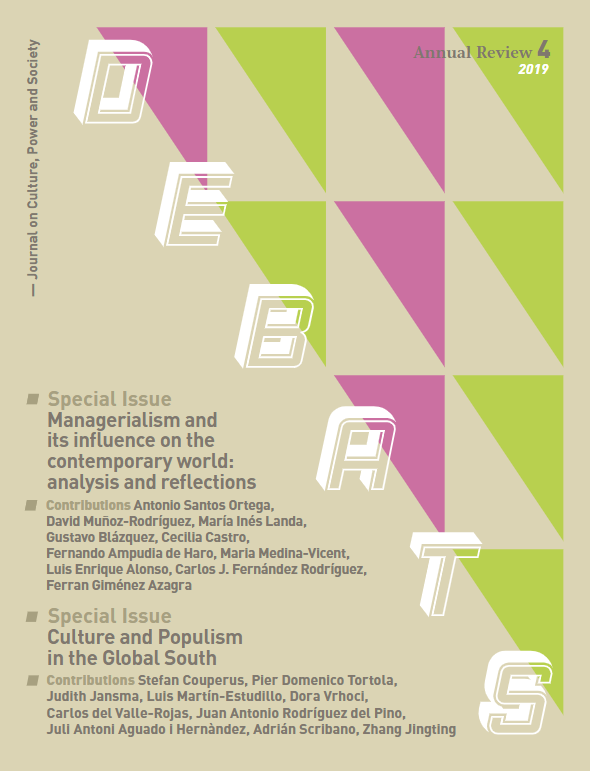A Critique of The Civilising Rationale: Strategies for producing marginalisation
DOI:
https://doi.org/10.28939/iam.debats-en.2019-13Resumen
The radical distinction between civilization and barbarism used in the discourse of the national states of Chile and Argentina during the second half of the XIX century, not only was used to justify the genocidal military intervention of the territories inhabited by the mapuche indigenous from the south of both countries; but also inaugurated a conflictive relationship that remains to the present. The main objective of the paper is to identify the scope of the “civilization project” initiated during the second part of the 19th century and expressed during the 20th and 21st centuries through different and broad forms of marginalization, both ethnic and -by extension- immigrant, the
criminal and LGBT+ groups; in such a way that it is a historical, systematic and institutionalized process of producing marginalities, which considers various production strategies of the intimate enemy, especially from the cultural industry available in each time. The results show how “marginal/marginalized” is produced and reproduced, through policies of death, dispossession, inclusion/exclusion, in a constant relationship from moral, criminal and neoliberal rationalities.
Descargas
Descargas
Publicado
Cómo citar
Número
Sección
Licencia
Sin perjuicio de lo dispuesto en el artículo 52 de la Ley 22/1987 de 11 de noviembre de Propiedad Intelectual, BOE del 17 de noviembre de 1987, y conforme al mismo, los autores o autoras ceden a título gratuito sus derechos de edición, publicación, distribución y venta sobre el artículo, para que sea publicado en Debats. Revista de cultura, poder y sociedad.
Debats. Revista de cultura, poder y sociedad se publica bajo el sistema de licencias Creative Commons según la modalidad «Reconocimiento - NoComercial (by-nc): Se permite la generación de obras derivadas siempre que no se haga un uso comercial. Tampoco se puede utilizar la obra original con finalidades comerciales».
Así, cuando el autor o autora envía su colaboración, acepta explícitamente esta cesión de derechos de edición y de publicación. Igualmente autoriza a Debats. Revista de cultura, poder y sociedad, la inclusión de su trabajo en un fascículo de la revista para que se pueda distribuir y vender.











